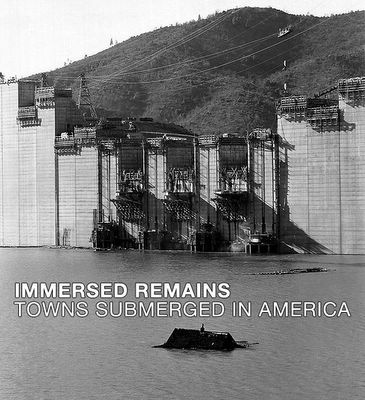Gregg Easterbrook has seen fit to slap the wrist of Jared Diamond, author of Collapse (a book I'll cheerfully confess that I haven't read). Easterbrook begins by praising Diamond for knowing things, and for writing well - one can see how even the most modest attainments in these areas might overawe Easterbrook - but soon enough his mood darkens. Diamond's work of history, we learn, has been insufficiently attentive to the future, that wide and infinitely pleasing land in which all things are possible and all wrongs righted.
If trends remain unchanged, the global economy is unsustainable. But the Fallacy of Uninterrupted Trends tells us patterns won't remain unchanged.It seems like a very serious matter to run afoul of the Fallacy of Uninterrupted Trends, until you realize that Easterbrook invented the phrase specially for the occasion, and sprinkled capital letters over it like water from a baptismal font.
Which is not to say that trends are never interrupted, of course. And just in case anyone's skeptical about this point, Easterbrook is careful to offer an example of an interrupted trend:
[D]eforestation of the United States, rampant in the 19th century, has stopped: forested acreage of the country began rising during the 20th century, and is still rising.This is true, and yet it's not true at all. In the East, deforestation peaked circa 1920. However, it continues in the West today. Regrowth has indeed occurred, but areas of regrowth comprise second-growth forests, which are quite different from old-growth forests, both in terms of composition and the types of animal life they'll support. We aren't returning, as Easterbrook suggests, to a former state; we're advancing to a new state which involves, among other things, a net loss of biodiversity.
But never mind all that. Easterbrook's got some exceedingly large fish to fry in that little pan of his:
Diamond fears our fate was set in motion in antiquity...Considering Easterbrook's well-known impatience with postmodernism, it's odd to see him criticizing a historian for believing that "fate is set in motion in antiquity." Where should Diamond have sought the origins of the present, if not in the past?
[W]e're living off the soil and petroleum bequeathed by the far past, and unless there are profound changes in behavior, all may crash when legacy commodities run out. Oddly, for someone with a background in evolutionary theory, he [Diamond] seems not to consider society's evolutionary arc. He thinks backward 13,000 years, forward only a decade or two. What might human society be like 13,000 years from now?I suppose that depends on whether or not our society crashes when legacy commodities run out. If Diamond thinks forward only a decade or two, it's possibly because there are important decisions to be made within that period of time, and important challenges to be overcome. This may be fallacious reasoning on Diamond's part, but at least it's based on observation of current trends. Easterbrook, by contrast, simply plays leapfrog with any obstacles the future presents, and calls it "society's evolutionary arc" (while completely ignoring what arcs do). Don't like the looks of things today? Jump ahead 13,000 years, and rejoice in a Golden Age of peace and plenitude!
This, as everyone knows, is the Fallacy of Phantasmic Pseudotemporal Inanity, and it's a sin to which Easterbrook is very prone:
Above us in the Milky Way are essentially infinite resources and living space.That's a rather glib remark, and I'm not surprised that it's a bit light on technical details. Mars may have very real charms, but if we want a planet with oceans and lakes, we may have to go very far much further afield. The safest, most reasonable assumption is that we will find no planet able to sustain us, ever; this may be a sin against the science of optimism - that comfortable discipline which led Easterbrook's 19th-century doppelgangers to announce that "rain follows the plow" - but it's an eminently sound basis for current public policy. Unlike this:
If the phase of fossil-driven technology leads to discoveries that allow Homo sapiens to move into the galaxy, then resources, population pressure and other issues that worry Diamond will be forgotten.At which point, the dry chuckle of Easterbrook's ghost will be heard along the banks of the river Styx.
It's amazing to realize that Easterbrook objects to Collapse because it doesn't devote enough attention to the pleasures of an imaginary world that none of us will live to see in any case, especially when you consider that Easterbrook is so dismissive of our ability to know what life was like in 11,000 BC. Granting the difficulties of looking 13,000 years into the past, most sane people would still consider it a more tractable problem than looking 13,000 years into the future. And yet, Easterbrook's idle daydreams about what life will be like 13,000 years hence comprise almost the entirety of his critique of Diamond, as thus:
Most of the earth may even be returned to primordial stillness, and the whole thing would have happened in the blink of an eye by nature's standards.Indeed, man is like a vapor, which appeareth for a short time, then passeth away. Although Easterbrook's own span of years is immeasurably small when considered against the geological time scale, I assume that his existence nonetheless has some relevance to him, no matter how inexplicable that may seem to the rest of us. Diamond is writing to people who are alive now, about the things that cause societies to fail; I really don't see how the force or immediacy of his arguments is diminished by his refusal to discuss the possibility that we might someday emigrate to the Crab Nebula.
Given the problems we face, Easterbrook's recourse to the Astronautical Sublime is utterly childish, and potentially destructive. If he had any common sense at all, he'd realize that cornucopian thinking doesn't pose a coherent reproach to arguments like Diamond's; in fact, it's a major cause of the cultural problems Diamond's describing.
Link via Atrios.




